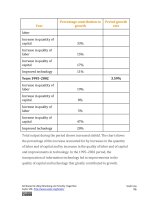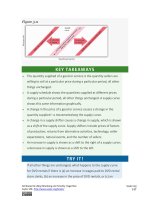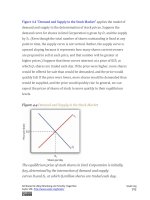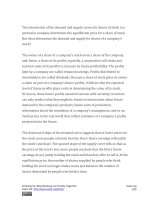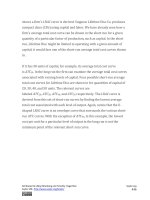Authors libby rittenberg 101
Bạn đang xem bản rút gọn của tài liệu. Xem và tải ngay bản đầy đủ của tài liệu tại đây (289.47 KB, 1 trang )
economic freedom have thus gravitated toward market capitalism. Second,
market economies are more likely than other systems to allocate resources
on the basis of comparative advantage. They thus tend to generate higher
levels of production and income than do other economic systems. Third,
market capitalist-type systems appear to be the most conducive to
entrepreneurial activity.
Suppose Christie Ryder had the same three plants we considered earlier in
this chapter but was operating in a mixed economic system with extensive
government regulation. In such a system, she might be prohibited from
transferring resources from one use to another to achieve the gains
possible from comparative advantage. If she were operating under a
command socialist system, she would not be the owner of the plants and
thus would be unlikely to profit from their efficient use. If that were the
case, there is no reason to believe she would make any effort to assure the
efficient use of the three plants. Generally speaking, it is economies toward
the market capitalist end of the spectrum that offer the greatest
inducement to allocate resources on the basis of comparative advantage.
They tend to be more productive and to deliver higher material standards
of living than do economies that operate at or near the command socialist
end of the spectrum.
Attributed to Libby Rittenberg and Timothy Tregarthen
Saylor URL: />
Saylor.org
101
